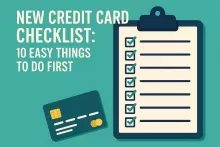Generation Z Modern Earning Trends and Opportunities

Generation Z, often called Gen Z, is the cohort of individuals born between 1997 and 2012. This generation is distinct in its tech-savviness, entrepreneurial spirit, and highly digital lifestyle. Having grown up with smartphones, social media, and constant internet access, Gen Z is navigating the modern job market in ways previous generations may not have imagined. Let’s explore the key earning trends and opportunities that define Gen Z’s approach to work, wealth, and their changing career landscape.
Understanding Gen Z: Key Characteristics
Before diving into the earning trends, it’s important to understand what sets Gen Z apart:
- Tech-Savvy: Gen Z’s relationship with technology is innate. They are digital natives who interact with devices, apps, and online platforms on a daily basis. This high level of comfort with technology has shaped how they communicate, work, and make money.
- Diverse and Inclusive: This generation places a strong emphasis on diversity, inclusion, and social justice. Gen Z is not afraid to stand up for causes they believe in, advocating for gender equality, racial justice, and environmental sustainability.
- Entrepreneurial: A notable trait of Gen Z is their entrepreneurial mindset. Many members of this generation are driven by the desire to build their own businesses or side hustles, often through digital platforms.
- Pragmatic and Financially Minded: Having witnessed economic downturns and uncertainties, Gen Z tends to prioritize financial security. They are conscious of their financial well-being and are keen to explore diverse ways to make money, often blending traditional and non-traditional career paths.
How Gen Z is Earning Today
Let’s take a closer look at some of the ways Gen Z is earning money in the modern economy.
1. Gig Economy and Freelancing
The gig economy is thriving, and Gen Z is playing a pivotal role in it. Many young individuals are opting for freelancing and short-term contracts in fields like:
- Graphic Design
- Web Development and Coding
- Copywriting and Content Creation
- Video Editing
With platforms like Upwork, Fiverr, and Freelancer, Gen Z has found a way to monetize their skills and work with clients globally. The flexibility of freelancing allows them to build their portfolios while maintaining control over their schedules.
2. Content Creation and Social Media
Social media is a goldmine for those who can harness its power. Gen Z is using platforms like YouTube, TikTok, Instagram, and Twitch to create content and generate income. Revenue comes in various forms:
- Ad Revenue from platforms like YouTube.
- Brand Partnerships and Sponsorships with companies wanting to tap into Gen Z’s large, engaged audience.
- Viewer Donations and Crowdfunding, especially through platforms like Patreon and Twitch.
Content creators in this space can earn substantial amounts, depending on their audience size and niche, with some turning their passion into a full-time career.
3. E-commerce and Online Businesses
With the rise of platforms like Etsy, Shopify, and social media marketplaces, many Gen Z entrepreneurs are opening online stores. Some of the most popular products they sell include:
- Handmade Crafts
- Apparel and Accessories
- Dropshipping Products
Running an e-commerce business offers Gen Z the opportunity to be their own boss and tap into global markets. They are also adept at leveraging social media to drive traffic to their online stores, making it easier than ever to scale a small business.
4. Remote Work and Traditional Employment
While many in Gen Z are gravitating toward non-traditional career paths, remote work is still highly attractive to this generation. Jobs in fields like:
- Tech (Software Development, IT Support)
- Marketing and Digital Marketing
- Creative Industries (Design, Content Creation)
- Customer Service
Remote positions allow Gen Z workers to enjoy flexibility while securing a steady income. They also have the option to juggle multiple remote roles or freelance gigs, enhancing their earning potential.
5. Investments and Cryptocurrency
Gen Z is also showing a keen interest in investment opportunities such as:
- Stocks and Bonds
- Cryptocurrency and NFTs
- Real Estate Crowdfunding
With platforms like Robinhood, Coinbase, and eToro, young investors can easily dive into the world of stocks and crypto trading, seeking to grow their wealth and achieve financial independence.
6. Online Education and Tutoring
Many Gen Zers are leveraging their academic strengths by offering online tutoring services or creating educational content. Platforms like Udemy, Skillshare, and Coursera allow them to teach everything from coding to music theory. Gen Z educators are also offering personalized tutoring sessions in various subjects, helping students around the world.
7. Influencers and Brand Ambassadors
With the rise of social media, some Gen Z individuals have turned their online presence into a lucrative business. Influencers promote products and services to their followers in exchange for compensation. This has turned into a full-time career for some, with brands seeking out influencers to market their products through sponsored posts and collaborations.
8. Gaming and Esports
For many Gen Zers, gaming is not just a hobby but a viable career. The esports industry, in particular, has experienced tremendous growth, and Gen Z is capitalizing on it. Opportunities include:
- Competitive Esports Gaming
- Streaming on Twitch and YouTube
- Gaming Content Creation
Esports tournaments, sponsorships, and ad revenue have turned competitive gaming into a multi-billion-dollar industry, offering both fame and fortune to skilled gamers.
Challenges Facing Gen Z
While there are abundant opportunities, there are challenges that Gen Z must navigate:
- Job Market Competition: As more individuals flock to freelancing and digital platforms, competition increases, making it difficult to stand out, especially in saturated industries like social media influencing and content creation.
- Economic Uncertainty: The global economy can affect job stability, even for remote workers or freelancers. Economic downturns can also impact investment markets, making it harder for Gen Z to achieve long-term financial security.
- Mental Health: The pressure to maintain a social media presence, juggle multiple side hustles, and meet financial goals can take a toll on mental health. The constant need to be “on” and to perform for an online audience can lead to burnout and anxiety.
Adaptability and Future Trends
Gen Z is nothing if not adaptable, and they are continually developing new skills to stay ahead in the workforce. Some emerging trends and skills to watch out for include:
Skill Development
As technology advances, Gen Z will continue to focus on skill development, learning new programming languages, design tools, and business strategies to keep up with the ever-changing digital landscape.
Sustainability
Gen Z has a growing interest in ethical businesses, sustainability, and eco-friendly practices. Many of them are likely to pursue careers or entrepreneurial ventures that align with their values, focusing on sustainable practices and products.
Hybrid Work Models
The trend toward remote and hybrid work models is expected to continue, allowing Gen Z to enjoy greater work-life balance while tapping into opportunities from around the globe.
Conclusion
Generation Z is reshaping the way people think about work and money. By embracing technology, pursuing diverse earning streams, and staying true to their values, Gen Z has become a force to be reckoned with in the modern economy. Whether through content creation, freelancing, or digital entrepreneurship, Gen Z is proving that earning money in the 21st century can be as flexible and innovative as the generation itself. As they continue to adapt to new trends and technologies, their influence on the economic landscape will only grow, creating new opportunities for future generations to follow.




Leave a Reply